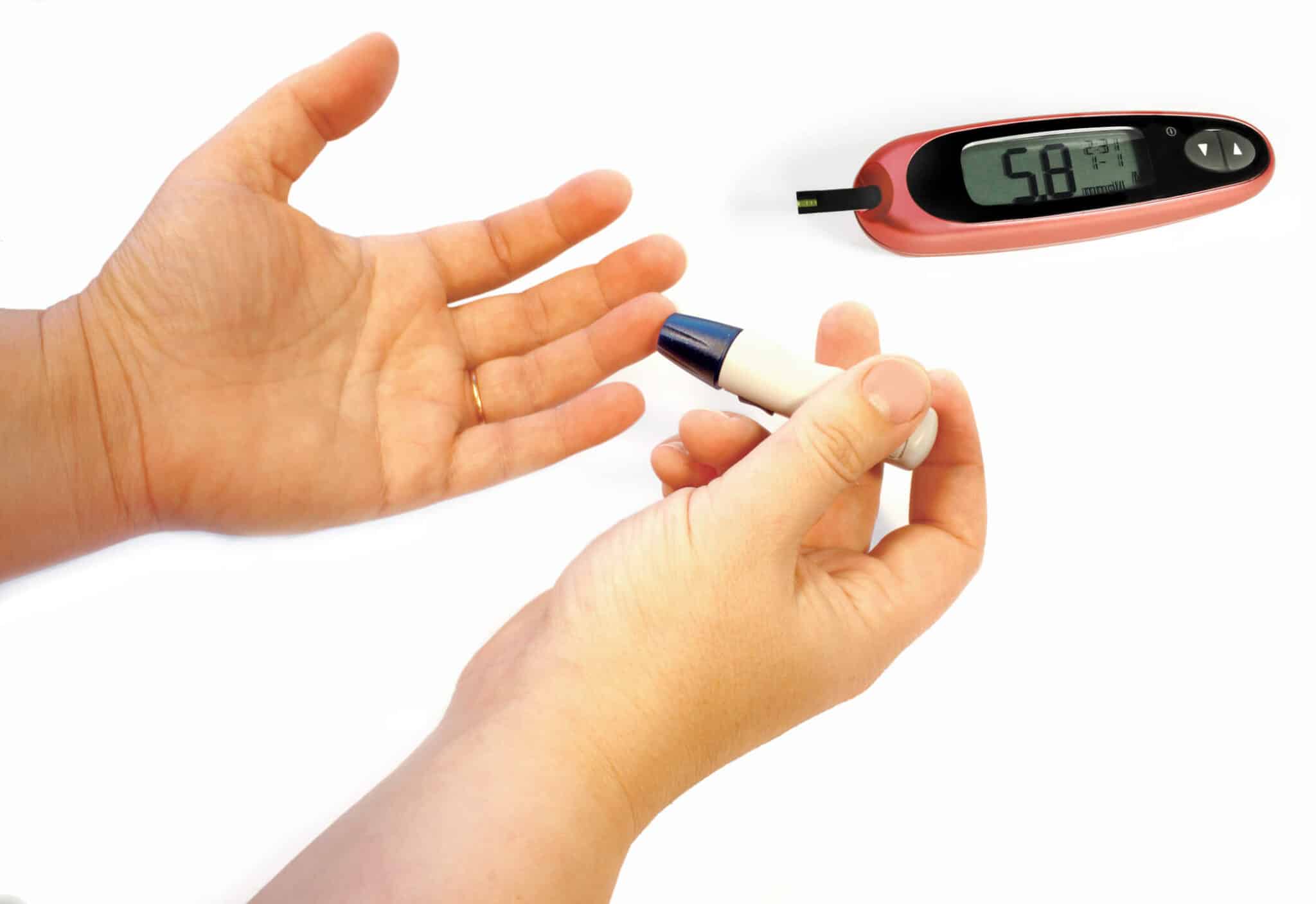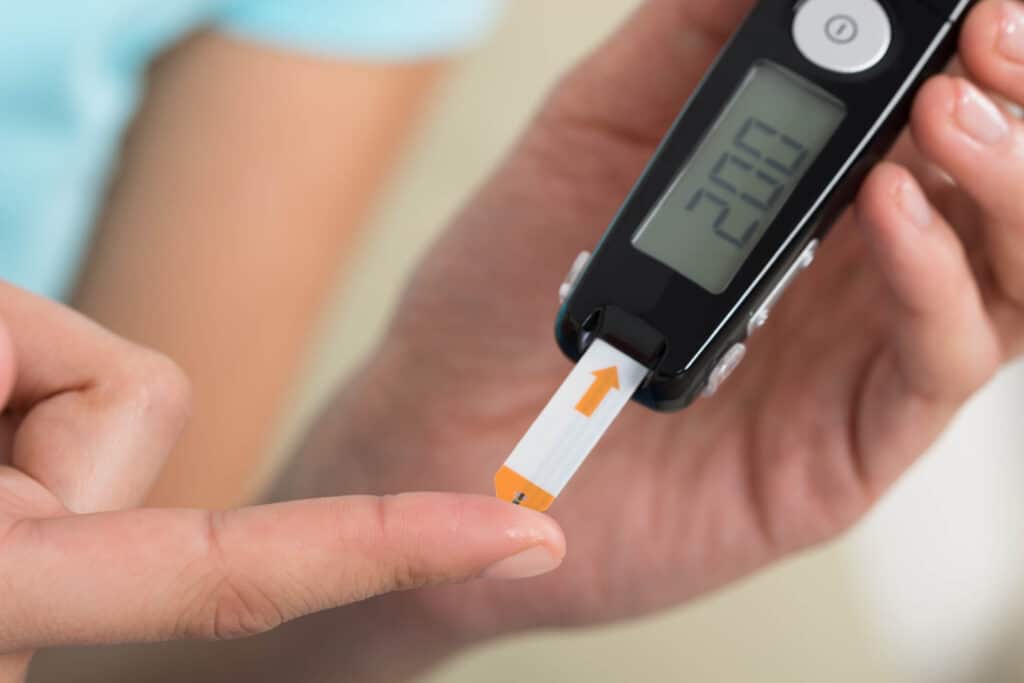
Can a Low Battery Affect Your Blood Sugar Readings?
Posted on October 19, 2022 at 02AM
Monitoring your glucose levels can assist you in determining whether your glucose goals are being achieved. It lowers the risk of developing long-term diabetes and the unpleasant effects of low or high blood sugar levels.
Typically, you’ll need a blood sugar monitor to measure and show yourblood sugar level. The readings from these meters are generally accurate when used correctly. However, there are circumstances when you could get inaccurate results.
One of these situations is when the device’s battery is low.
Diabetes patients want to know the possibility of getting inaccurate blood sugar readings due to a meter’s low batteries. To answer this question, we examined the unique experiences of other people before compiling an extensive result for it. This article explains what we found out.
Why is accurate blood glucose level measurement essential?
A blood glucose (sugar) level test measures the amount of sugar in an individual’s blood and detects diabetes. The results allow you to learn what is effective and pinpoint areas for growth in your diabetes treatment.
While you and your medical team will decide how frequently you should monitor your blood sugar levels, most diabetes patients do it before all meals and snacks, before going to bed, before engaging in strenuous activity, before engaging in dangerous tasks like operating a motor vehicle, or whenever they have a suspicion of having low blood sugar.
Patients with type 1 diabetes who use an insulin pump, daily insulin injections, or any of these check their blood sugar more regularly.
Higher blood sugar levels above the normal range of 70 to 99 mg/dL may indicate diabetes or pre-diabetes.
Does low battery affect the blood sugar monitor’s accuracy?
This question ranks amongst the most asked questions about blood glucose meters, with several people sharing their experiences. These two experiences particularly piqued our interest.
1. Wrong test with low battery!
“I have noticed the low battery indication on my meter for a few weeks. I took a reading today, and it was 196, with nothing new in my diet or medications (for comparison, the most I’ve ever seen before I started eating low carb was 160).
I panicked slightly and took two additional readings (182 and 178). Still excessive. By the way, I don’t have any mania, shakiness, drowsiness, or lethargy symptoms. I hurried to the store to get a new battery, returned it, and rechecked my blood sugar within 15 minutes. Only to reach 113. “
“I’m going to chalk this up to a low battery issue, but I wanted to post this information in case anyone else finds themselves in a similar situation. I also wanted to see if anyone else had experienced this with their meters.”
2. Always get new batteries for your meters!
“My meter was giving me some odd test results recently. My test results ranged from 112 to the middle 300s over a few days, but my nutrition and other aspects of my routine have remained the same. However, I was still staring back at the numbers.”
“I realized the meter’s low battery caused the incorrect readings I got. Since we rely on these little devices, a functioning meter is crucial for someone with diabetes.”
Does a low battery affect your meter’s reading? – Our perspective.
The answer to this question is “yes” and “no,” depending on your blood sugar monitoring device type.
Yes: A reliable battery supply is necessary for accurate readings like any other electronic gadget. Some digital meters use specific voltages supplied by the precision regulator.
Suppose the voltage supplied to the regulator is below the specified reference voltage initially designed to give. In that case, the reference voltage could result in an error. That means the result you get when your device’s low battery could be inaccurate. Changing the battery will ensure accuracy.
No: Most modern blood sugar monitors are designed to maintain accuracy at all times. A well-designed circuit would work as intended until the battery voltage decreased to an undesirable level. At that point, it would either stop working or indicate “low battery,” or potentially both.
So instead of continuing to work on a low battery and potentially displaying inaccurate results, your blood sugar monitoring device will show a low battery warning or shut down.
The answer to the question depends on your device type and how it behaves.
Managing Diabetes with Precise Blood Glucose Meter Readings
Blood glucose meters, sometimes called glucometers, are essential, highly-accurate tools for monitoring and managing diabetes. These devices allow users to quickly and reliably measure the amount of sugar in their blood to maintain the proper balance necessary for good health. Different blood glucose meter styles are available, ranging from traditional models that require a small blood sample placed onto a test strip to newer versions that use alternative testing methods such as optical or acoustic signaling technology.
No matter your type, these devices are exact and immediately provide results. As an added benefit, many also feature additional features like reminders to stay on top of testing regimens and data tracking capabilities so that anyone can identify trends over time. While using a blood glucose meter might seem intimidating at first, with practice, it can become an integral part of daily life in helping you manage your diabetes successfully.
What Affects Blood Glucose Meter Accuracy?
- The code of the blood glucose meter on your test strip does not match the provided code: Ensure that your strips match the code on the meter insert before testing. You must check both pieces of information for accuracy and consistency!
- Test Strips that have passed their expiration date: Before using any product, check the expiration date twice. Furthermore, check whether the box is still valid, as it might have a discard date.
- The test strips are not stored correctly: To avoid errors, holding the test strips in a cool, dry place at room temperature is essential. Keep them untouched in their original box, and close the lid immediately after using the strip. Doing so will help ensure that you get reliable results when testing!
- Meter misapplication or improper use: To ensure proper use of your meter, thoroughly read all instructions provided. Additionally, contact a physician or diabetic specialist for additional guidance and advice. For instance, they may recommend taking blood samples from places other than your finger, such as your forearm.
- Inaccurate blood sampling: An incorrect sample size or lack of proper training from an expert can significantly impact your outcomes. Moreover, inadequate blood flow will also harm the results.
- A blood glucose meter that’s dirty: Dirt, dust, or other factors that affect a meter can alter the results of your tests. For instructions on maintaining and cleaning your meter, go to its handbook.
- Calibration of blood glucose meters: Similar to any other electronic device, your meter requires calibration. When using a new “batch” of test strips, the first time using a new blood glucose meter, or if you suspect there may be an issue with the meter, such as when your results don’t match how you felt when you took the test.
- The battery is running low on power: Low battery charge may impact test findings. Change the battery if the meter indicates that it is low.
- Make sure the testing area is ready: The testing area should be adequately cleaned and sanitized. Clean the area where blood will be taken using warm, soapy water and an alcohol wipe.
- Additional aspects: Triglyceride levels, low blood pressure, high blood pressure, and specific drugs are some additional items that can result in inaccurate readings. Speak to your doctor.
Other factors that can affect the accuracy of your sugar monitoring device are.
- Meter deviations
Every meter on the market has a unique calibration procedure, set of enzymes, and set of computer programs (algorithms). Even within product lines from the same business, each brand’s manufacturing, chemistry, and calibration procedures can vary.
Your results may differ if you use one brand or type of meter in the morning and another at night.
Stick with one meter to simplify the interpretation of your blood glucose levels.
- Test Strips
Test strip failure can lead to inaccurate findings if the strip has been contaminated, damaged, or expired. The test can also produce wrong results if the test strip has been affected by heat and humidity or if insufficient blood is applied.
The test strips that a person with diabetes should always store in their original containers at the manufacturer-recommended storage temperature. Also, check to ensure the test strip you use is ideal for your type of meter.
- Chemicals on your skin
Anything you touch or apply to your skin can wind up on your test strip and consequently impact your blood sample. Since many current meters use a micro-sized blood sample, even touching anything with sugar and failing to wash your hands can cause your readings to be off.
- Blood content of your test strips
There could be too much or insufficient blood in the test strip sample region, which could result in false positives or negatives.
Check your meter’s manual for the minimum blood sample size needed for testing. So you know how much blood is necessary.
- Body part used for the test.
Test findings from alternative areas like your forearms, calves, or thighs are frequently less accurate than testing with your fingertip because of the physiological variances in the circulation of specific body parts.
It is due to the frequency of new blood circulating throughout the body. Other areas, like the forearms, may be unable to pick up changes as fast as the fingertip if you’ve recently eaten, exercised, or taken medicine that could lower your blood sugar.


